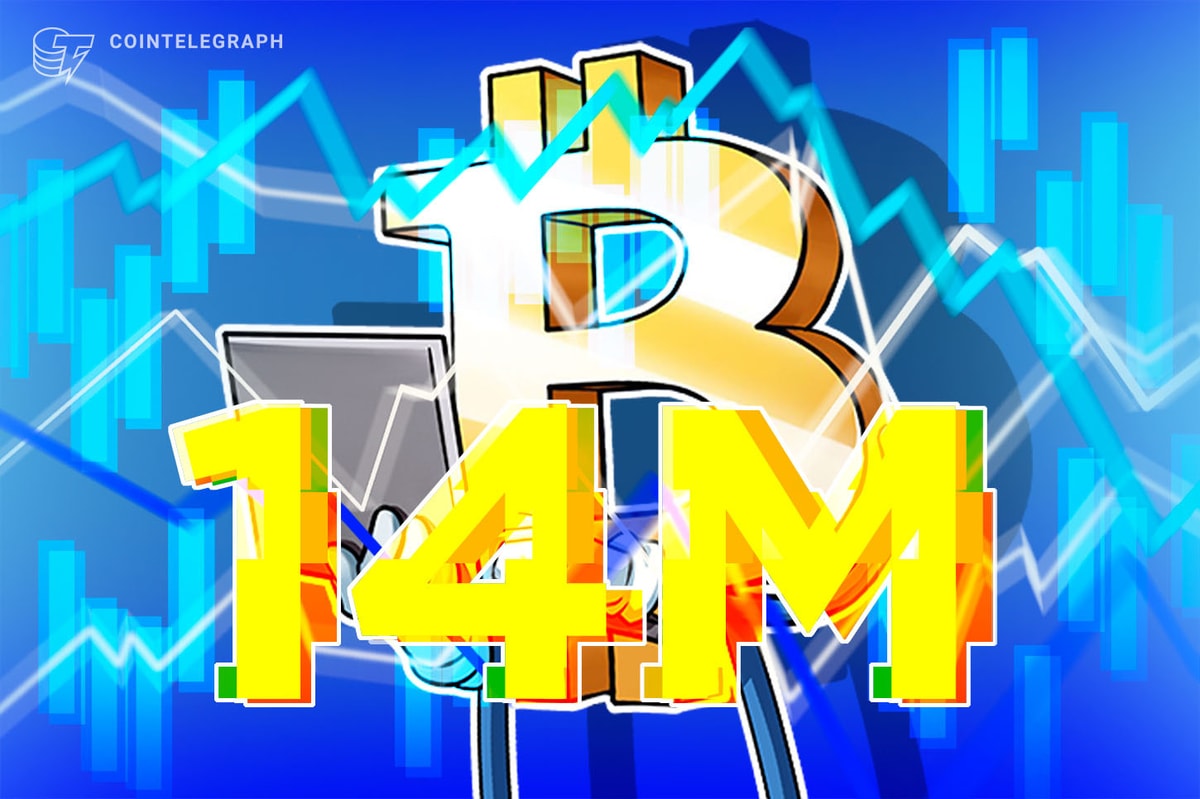Bitcoin’s (BTC) price has recovered swiftly over the past 12 hours, reclaiming the $61,000 level after the S&P 500 reached a new all-time high.
The market is currently bracing for volatility ahead of the Federal Open Market Committee (FOMC) meeting and rate cut announcements, which will likely impact both the United States stock market and the cryptocurrency industry.
Related: Markets see 0.5% Fed rate cut — 5 Things to know in Bitcoin this week
At the moment, there is an increasing correlation between Bitcoin and major US stocks, which can give us an outlook on what to expect when considering the historical performance post-previous rate cuts.
S&P 500 can be “short-term” bearish post-FOMC
The S&P 500 index is considered a key criterion to understand the trend of the overall US market. It represents a wide number of companies in different sectors, and the index was valued at $45.84 trillion in June 2024.
The index is presently in an uptrend, reaching a new all-time high of 5670 a day before the FOMC meeting. Current speculation suggests that traders are “pricing in” a 0.50 basis point or 0.5% rate cut.
However, historically, whenever interest rates have been slashed, the SPX index has experienced a short-term drop for most of the time.
Since 1984, the US Federal Reserve has exercised rate cuts 10 times, of which SPX’s return on investment (ROI) during the one-month period has been negative 60% of the time. The previous two rate cuts in 2019 and 2020 also triggered immediate corrections.
SPX returns post-rate cut in previous years. Source: X
Thus, there’s a good chance that any rate cut could be a short-term negative for the SPX. A cautious 0.25% cut might spark a sharper pullback since the market has been trading with 0.5% being “priced in.”
Bitcoin, stocks correlation coefficient rises to 0.88
Bitcoin and the S&P 500 index have witnessed bouts of strong correlation over the past few years, especially evident during the bull market in 2021. During Q1 2024, the correlation coefficient (CC) was high as both SPX and BTC registered new yearly highs.
At the moment, the CC is rising back to high levels yet again.
As observed in the chart, the current correlation between BTC and SPX is 0.88. With both the assets moving in tandem, there is an expectation that they will move in unison after the FOMC meeting as well.
Bitcoin, SPX correlation coefficient and comparison chart. Source: TradingView
So, if SPX experiences a drawdown, BTC will likely suffer the same fate, as Bitcoin has not broken its multimonth downtrend.
Considering that a BTC correction might follow the cut in interest rates, the immediate target range is $54,000, where a CME futures gap was formed at the beginning of September.
Bitcoin 1-day chart. Source: TradingView
However, the drawdown could be deeper since this would be a major macroeconomic event. So, a liquidity sweep of previous lows at $48,880 is possible in such a scenario.
Bitcoin looks poised for gains in Q4
Despite the bearish scenario above, it is solely based on the shorter time frame for Bitcoin and the S&P 500. As illustrated in the previous chart, SPX has registered positive returns over the three-, six- and 12-month periods whenever the markets have not navigated through a recession, as witnessed during 1990, 2001 and 2007.
US recession risk parameters. Source: Franklin Templeton
Data from Franklin Templeton suggests that the risk of a recession remains relatively low compared to March 2024, indicating that the US economy is slowly improving in terms of consumer, business activity and liquidity.
Therefore, if a recession can be avoided, the SPX should shake off any short-term volatility from the rate cuts and continue the bull market. This would likely be a bullish scenario for risk-on assets such as Bitcoin in Q4.
This article does not contain investment advice or recommendations. Every investment and trading move involves risk, and readers should conduct their own research when making a decision.











